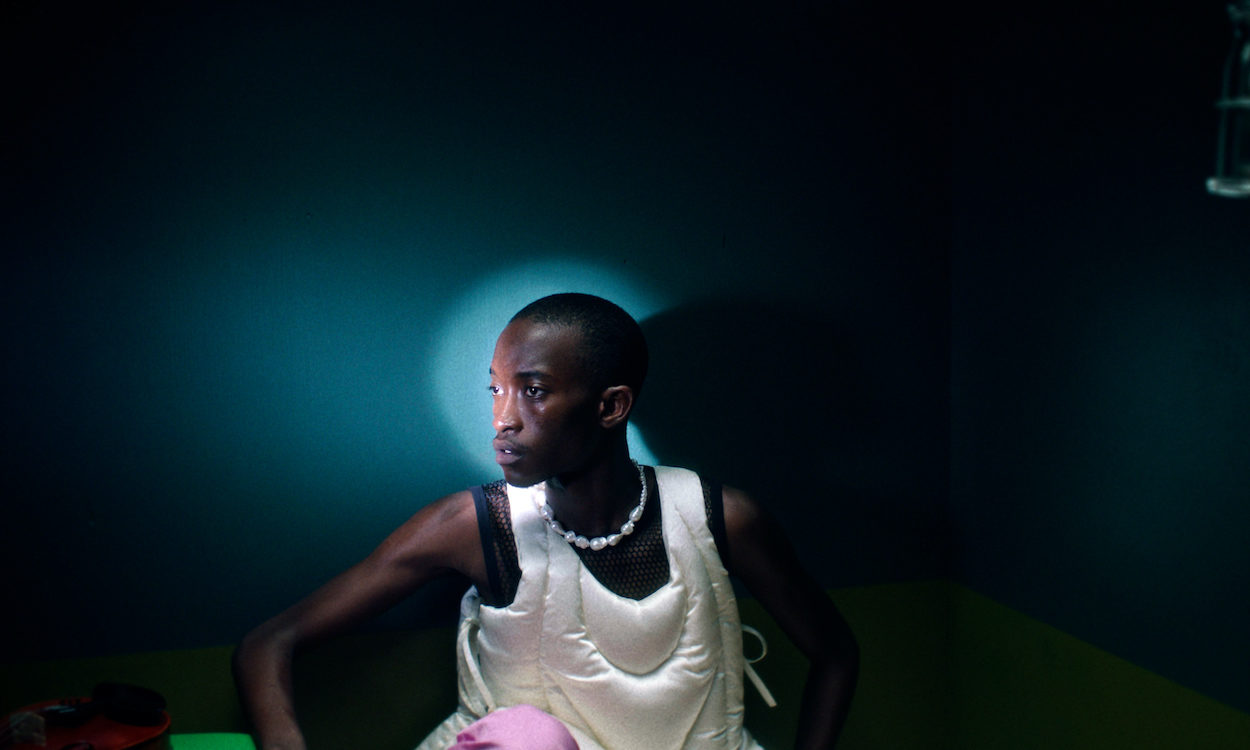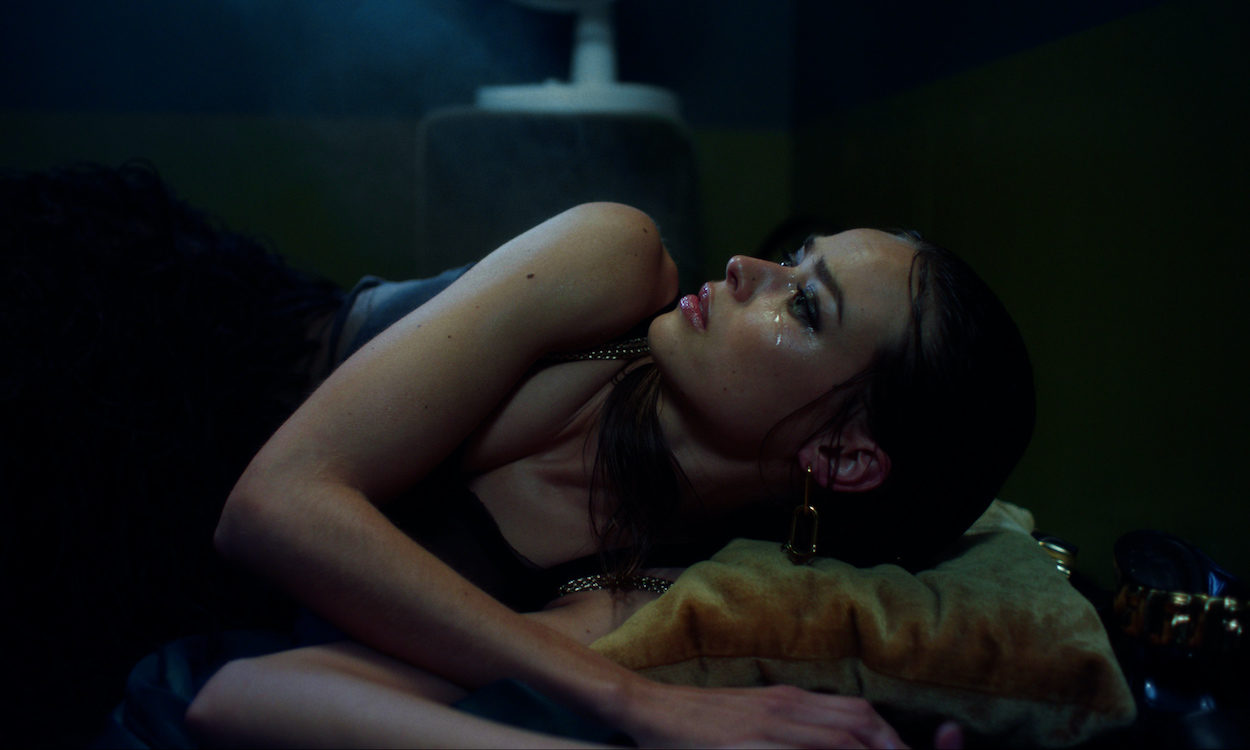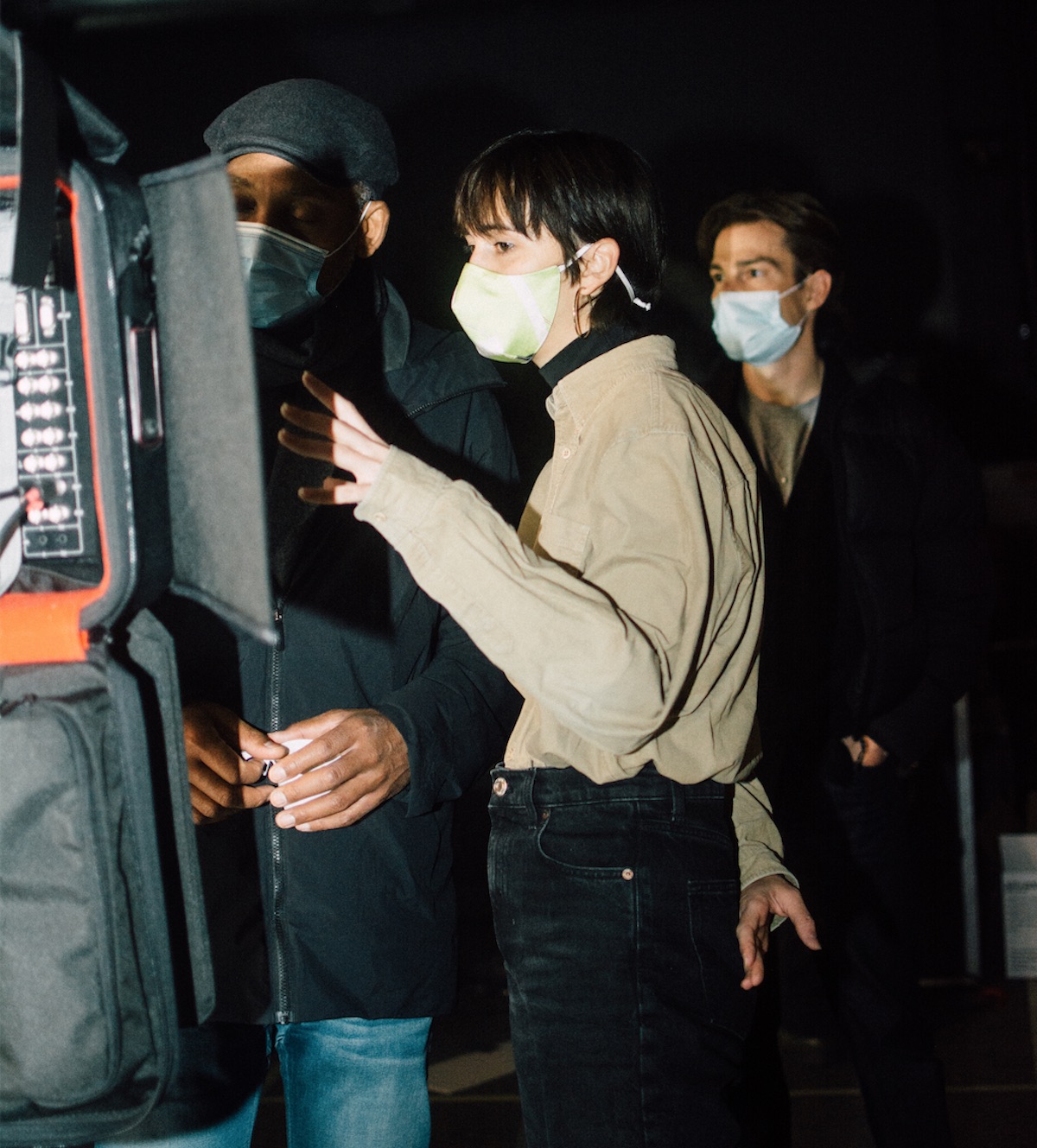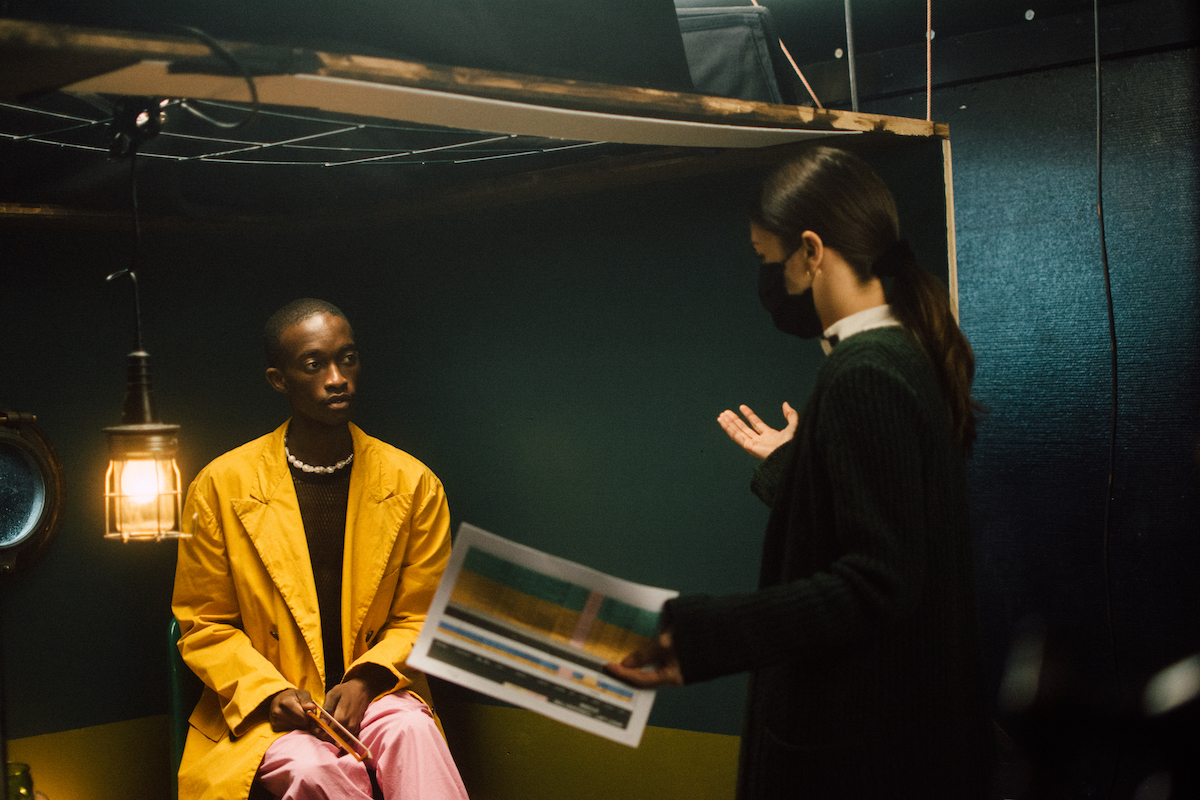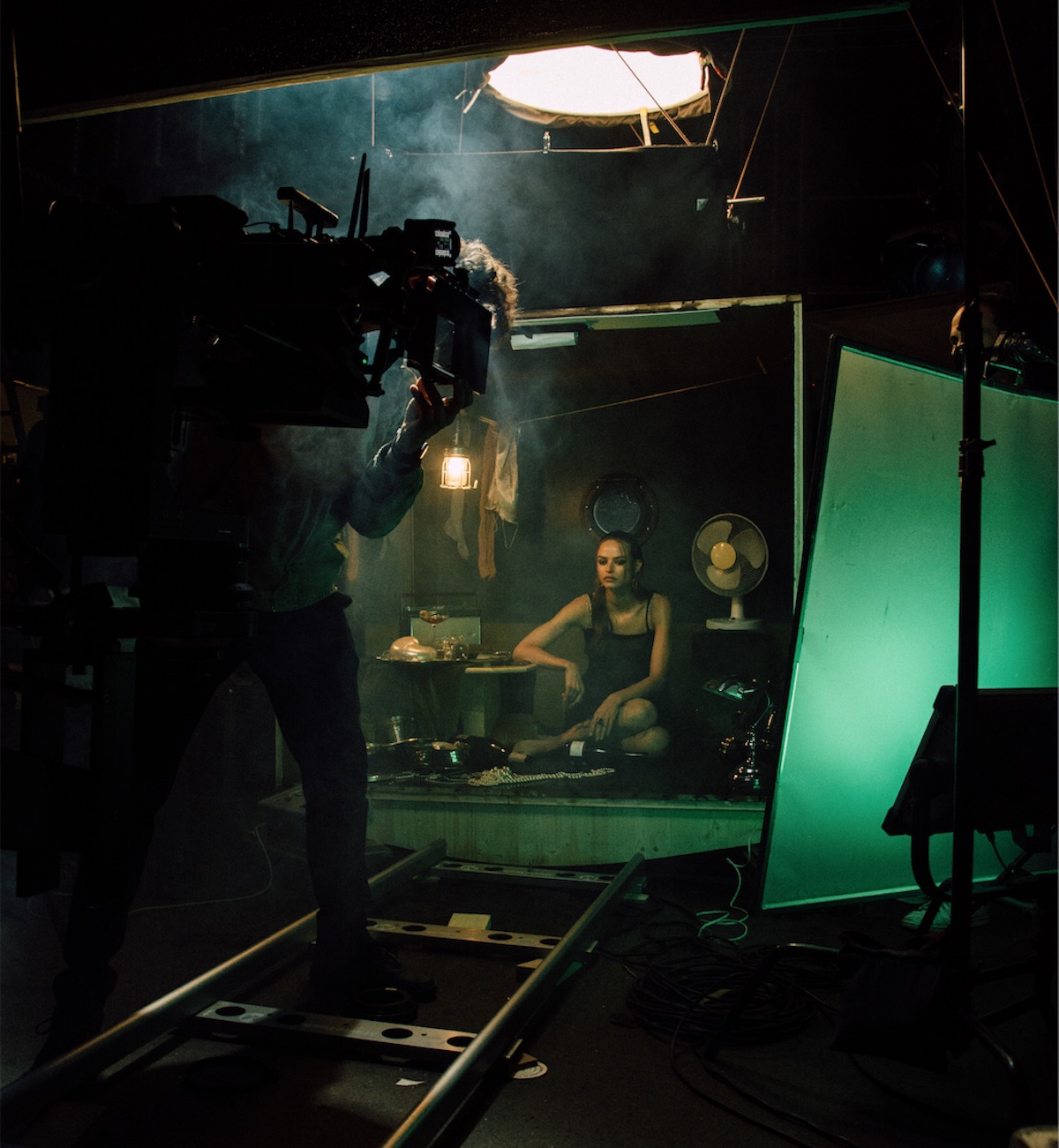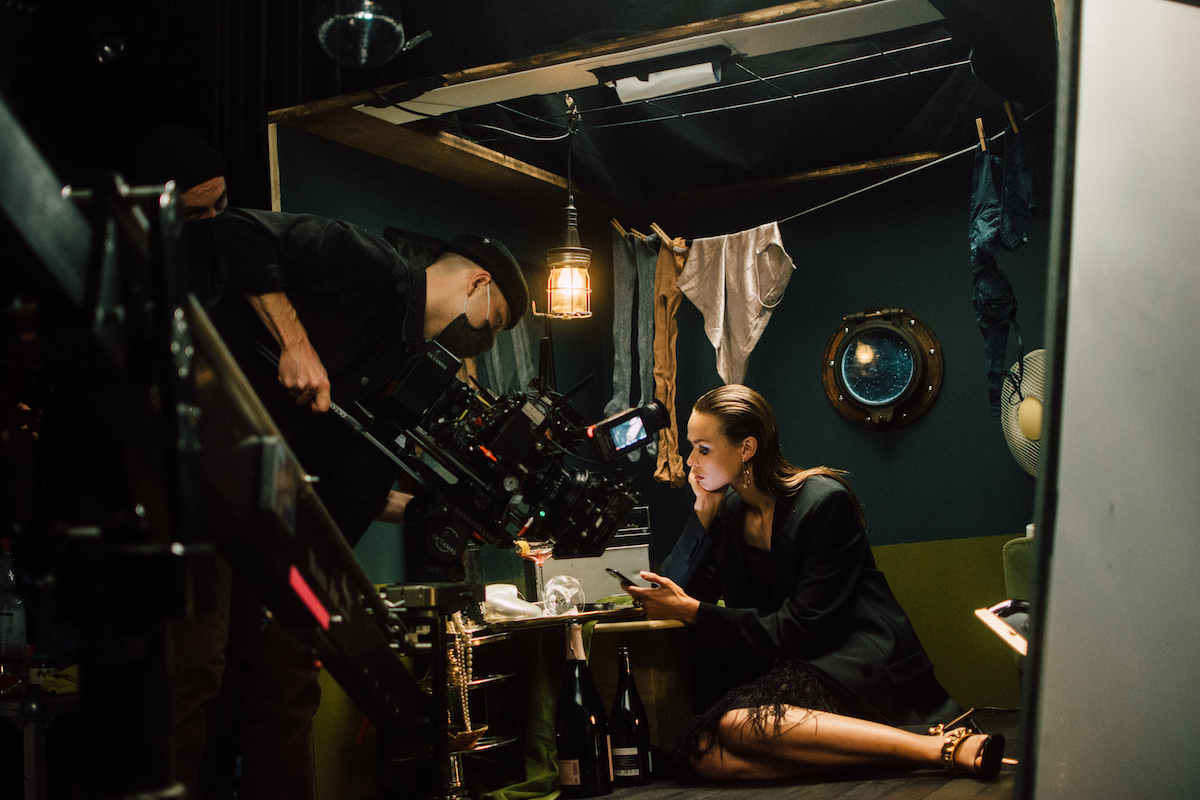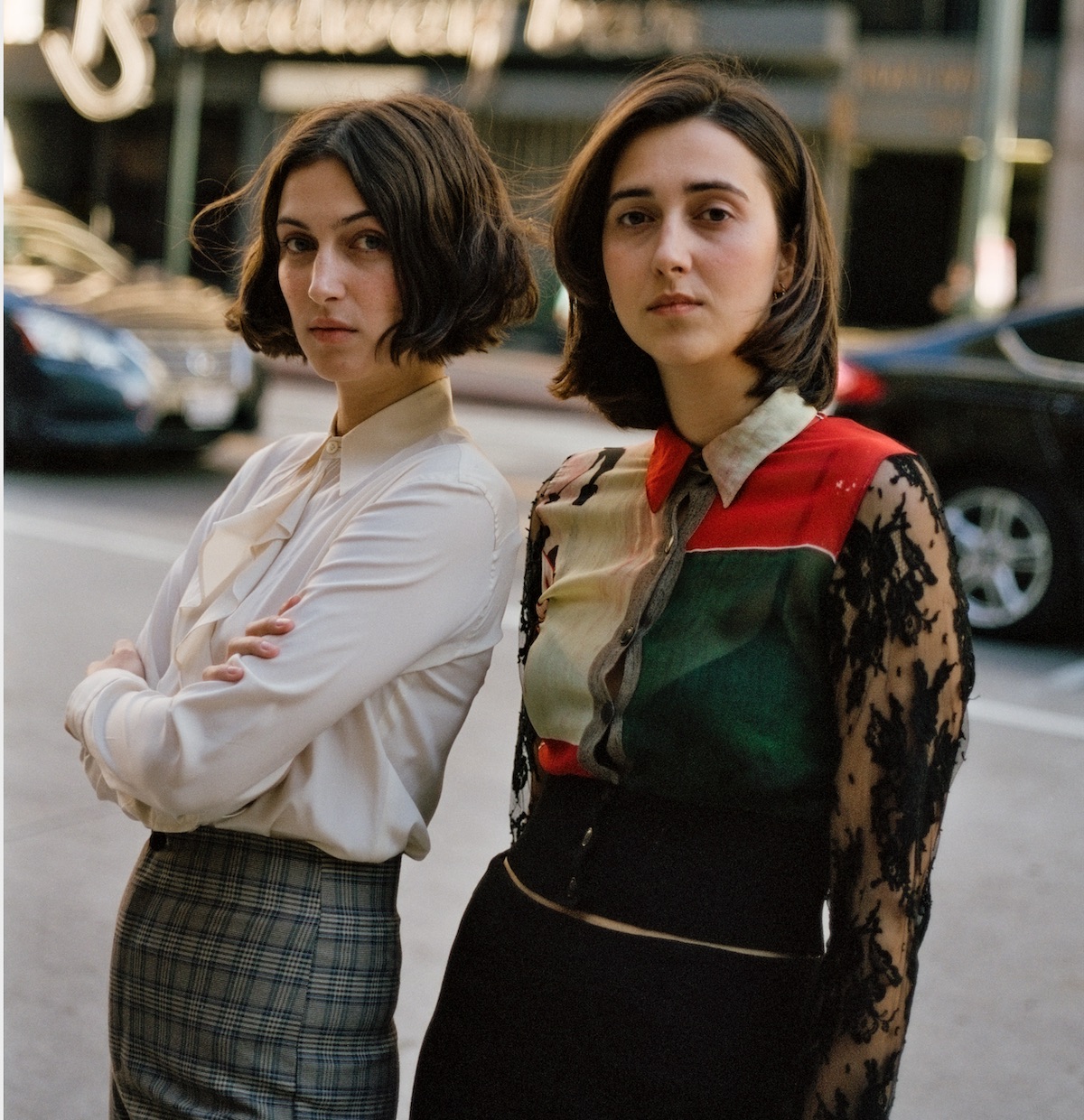 The Nüesch Sisters, Flo and Kim
The Nüesch Sisters, Flo and Kim
Coming from a creative family background, you started making films at a young age: can you tell us about those early efforts and what sort of subjects you were drawn to?
Both our parents always encouraged creativity. Our mother was quite the free-spirited artist and with her we spent a lot of time drawing, dancing, making up stories and acting them out. Film as a medium was always a passion of ours, but our first efforts to create our own began when our father bought a new video camera (Kim was 7, Flo 9). Shortly after that, he gifted our mother a MacBook, which included the editing software iMovie. Both those new tools enabled us to shoot our first films, which were mostly new stories for already known characters like James Bond, Charlie’s Angels, etc.
Once we started to make up stories, which were entirely our own, we played around with all kinds of genres and subjects throughout elementary school up to the end of high school. There did however seem to be an early tendency for very dramatic or tragic storylines.
You were born in Switzerland and later moved to LA to study film. How do you feel your background, upbringing and training has shaped your approach as filmmakers?
Our approach to film is definitely a mix between our Swiss upbringing and our American film training. We come from a long family tradition of architects and builders, and we always felt that because of this, production design plays a very important role in our films.
In high school in Switzerland, we both majored in fine art and art history, and our mother was a painter herself, which lead us to often look to fine art pieces as inspiration for new projects. But in LA, we learnt most of our technical knowledge of filmmaking, and the American approach is very controlled and perfectionistic. It’s honestly funny, because often when we talk to European filmmakers they remark how American our style is, and when we talk to Americans, they think we are so European.
Kim on site
Through The Storm is a brilliant visual metaphor for the past year – the relentless onslaught of bad news day in, day out and the claustrophobic nature of isolation and now, finally, the promise of reaching a safe haven. Can you tell us a bit more about how the concept came into being, and why you decided to make it as a fashion film?
Honestly, the idea to make a fashion film came before the concept. We were tossing around different ideas to pitch to Vogue, but we kept coming back to our current reality, because it felt strange to us to make a film that is beautiful, light, happy and didn’t connect with how we were feeling at the time. The metaphor of the boat in a storm was the first image we agreed to run with and we quickly decided we didn’t want to shoot an actual boat, but instead build a set from scratch – something we’ve wanted to do for a long time. We also soon knew that we wanted more than one model, because they would have to stand in for the pandemic experience of people in general. Everything else slowly grew from there.
There were a few production challenges, including Kim being diagnosed with Covid just before the scheduled shoot – what lessons do you think you have learned as a result of the shoot?
Never take your mask off – haha. In the film industry people often say that anything that can happen, will happen. That is of course even more the case during a pandemic. But we were lucky to have had a really great team and a lot of local support in our hometown, who went the extra mile to make the film happen, after the set back of Kim getting sick. It was definitely a lot of extra work and sweat, but some things also worked out better in the prep for our second shoot date. Overall, the lesson is that if you just keep at it with all that you have and with the right people behind you, you can make almost everything work, even if you have to do your pre-production from your bed in isolation.
Flo on set
We love the art direction, production design and styling of the individual ‘cabins’ and their inhabitants, particularly individual details like the two fish on a plate. Are you very detail-oriented as filmmakers? Do you tend to plan everything meticulously?
We are definitely very detailed oriented, which is why we usually start off very early with a colour palette and the gathering of mood stills. As mentioned above, production design plays an immensely important role in our films. We feel like so much of a person’s character is revealed in their surroundings and living situation.
In this film in particular, because there is no dialogue, production design was one big way of showing how different the three characters are. Our two Production Designers, Ramona Gschwend and Selina Perotto – also a women team from our hometown – did a breathtaking job. The amount of work they put into each cabin set up really shows. They worked together with Luana Perotto, who did the food styling. Wardrobe was the other big challenge, to which Philipp Junker rose without a hitch. Still, it was a long road of uncertainty until we had locked down costumes for each character and of course there was a constant discourse to match the wardrobe and production design.
Your award-winning short film Forget Me Not, about the effect of a mother’s bipolar disorder on her two daughters, is semi-autobiographical: how far do you draw on your own lived experiences and memories for your projects?
In general, we tend to draw from real experiences in one way or another, because we feel that a film becomes more authentic if you are honest with your audience. That doesn’t mean everything that is in our films is a memory. Even in Forget Me Not, a lot is fictionalised. But if you are writing a character, who is very different from you or you would even personally dislike, it’s helpful to bring in a part of yourself to understand that character better. Art imitates life, but it’s not a perfect copy of it.
Your work has explored mental illness and human connection/disconnection, what other themes or topics are you passionate about as filmmakers?
About two years ago we were at a film festival in Xiamen, China and at a panel discussion someone asked us why all our films are about loneliness. It seems that is a reoccurring theme for our films. At the moment we are reading up a lot about trauma and its long-term effects, so that is definitely a subject we’d like to explore. We are also very interested in history and the future, so projects that let us travel through time in either direction, would be something that we want to explore more.
How do you work together in practice as a directing duo? What’s the dynamic like being sisters as well as work partners?
We live together and work together and most of the time we spend our free time together as well. As sisters, outside of work, that can sometimes be a bit much, and we quarrel like all siblings. As business partners, our relationship is very harmonious. We are so in sync with each other, we often have the same idea at the same time.
On set our dynamic is pretty fluid. We switch off between each other giving notes to the actors, saying action, talking to camera and so on. It’s great to have someone back you up, because being a director is kind of a lonely job with a lot of weight to shoulder. In prep, Kim is more of the writer and Florine is a very visual person, but no matter what one of us is working on, it is in the end always a product of our collaboration.
And how do you resolve creative disagreements?
There really are almost no creative disagreements between us. We grew up together, watched the same films, like the same things and so we usually have the same taste in how to realize our projects. In the rare cases where there is a disagreement – for example on how to shoot something – we shoot it both ways and by post-production, at the latest, we agree on one way over the other.
What’s next in the pipeline for 2021?
We’re in the process of writing our first feature, but it’s early stages so we can’t say anything about that. Other than that, we are very open to more fashion films, commercials and music videos, but nothing is lined up at this moment.
Interview by Selena Schleh


